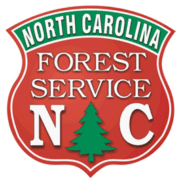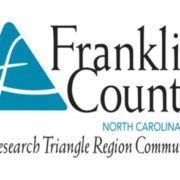UPDATE: June 30, 2025
— Information courtesy of VGCC Public Information Officer Courtney Cissel
Vance-Granville Community College recognizes 277 students for academic achievements during the recently completed Spring 2025 semester – 175 students earned President’s List academic honors and another 102 earned Dean’s List academic honors.
The President’s List includes students who achieved a perfect 4.0 quality point average while carrying a full load (12 credit hours or more) in 100-level or higher courses leading to a diploma or degree.
To qualify for the Dean’s List, a student must earn a quality point average of at least 3.5 but less than 4.0 and have no grade lower than “B,” while carrying a full load of courses as described above.
Students earning President’s List honors are listed below under their Area of Study:
Accounting & Finance:
Ms. Emily Florentino, Ms. Shemere Jackson, and Ms. Emily E. Travis, all of Henderson;
Ms. Zenita N. Wharf of Oxford
Air Conditioning, Heating & Refrigeration Technology:
Mr. Ricardo R. Quintanilla of Louisburg;
Mr. Keith-Berkley D. Bullock of Warrenton
Air Conditioning, Heating & Refrigeration Technology Diploma
Mr. Brent L. Stallings of Raleigh
Associate Degree Nursing:
Ms. Shannen N. Phelps of Creedmoor
Associate in Arts:
Miss Sofia D. Fernandez Torres of Butner;
Mr. Christopher T. Powell and Ms. Lacie C. Shelley, both of Creedmoor;
Ms. Peyton D. Paschall of Durham;
Ms. Sienna W. Armani, Ms. Anwaar Saleh, and Ms. Sarah B. Stein, all of Franklinton;
Mr. Noah A. Bean , Ms. Kianna L. Evans, Ms. Ashley M. Galmiche, Mr. Eyad S. Hauter, Miss Cassidy G. Hicks, Ms. Kenna V. Huynh, Ms. Wendy M. Portillo, Ms. Fatima M. Ramirez Ramirez, Ms. Layla M. Royster, Ms. Lauren N. Taylor, Ms. Thy Thi, and Mr. Andrew C. Tyndall, all of Henderson
Ms. Sydney T. Hockaday and Destiny L. Timberlake, both of Kittrell;
Mr. Renyeh Kromah of Louisburg;
Miss Juniper G. Cumming of Manson;
Ms. Emily B. Moseley of Norlina;
Miss Megan A. Coghill, Miss Cadence G. Hoyle, Ms. Madeline E. Jastrow, Miss Elizabeth A. Jones, Ms. Morgan E. Newton, Mr. Chase A. Pixler, and Miss Marleigh G. Swanner, all of Oxford;
Miss Allie E. Currin of Rougemont;
Ms. Kenley S. Sheats of Warrenton
Associate in Arts in Teacher Preparation:
Ms. Susan P. Alford of Louisburg;
Miss Lily J. Young of Wake Forest
Associate in Fine Arts
Ms. Abigail G. Shaeffer of Franklinton
Associate in Science:
Miss Elizabeth R. Ellis of Bullock;
Mr. Noah B. King and Mr. William A. Tuck, both of Butner;
Mr. Brayan Hernandez-Mata of Creedmoor;
Mr. Emad Alashmli, Miss Sarah F. Alzubairi, Miss Lynna Y. Mariano, and Ms. Laney S. Renn, all of Henderson;
Miss Nicola T. Thompson of Kittrell;
Mr. Jackson C. Collins, Ms. Jillian E. Johnson, and Ms. Shayla V. McDowell, all of Louisburg;
Mr. Sovannarith B. Seng of Manson;
Mr. Andrew M. Arnott, Mr. Timothy M. Daniel, and Kailee E. Ford, all of Oxford;
Mr. George T. Montague of Stovall;
Mr. David D. Perry, III of Warrenton
Automotive Systems Technology:
Mr. Nicholas P. Wincovich of Louisburg;
Mr. David Ewbank of Oxford
Biotechnology:
Mr. Mason T. Pendergrass of Henderson;
Mr. Keith L. Bridges of Louisburg;
Mr. Jeriel Canales Perez of Oxford
Business Administration:
Ms. Katherine R. Pyle, Ms. Kenan G. Roberts, and Miss Logan A. Walker, all of Creedmoor;
Mr. Jackson N. O’Briant of Durham;
Ms. Kerria S. Fleming of Louisburg;
Ms. Darian J. Yates of Stem
CCP College Transfer Pathway
Miss Emily G. Wilkinson of Oxford
College Transfer Pathway:
Ms. Samah E. Aldiri, Ms. Joy P. Berry, and Ms. Brenda L. Cruz Cruz, all of Creedmoor;
Ms. Montana L. Preddy of Franklinton;
Ms. Addison E. Barrow of Henderson;
Ms. Daira I. Martinez-Parra of Louisburg;
Ms. Libby K. Johnson of Oxford;
Ms. Laura K. Toothman of Rolesville;
Ms. Madison D. Reed of Stem;
Ms. Ashley N. Baranski and Jaden S. Easow, both of Wake Forest
Cosmetology:
Ms. Kaitlyn C. Gilbert of Bunn;
Ms. Amber H. Rose of Franklinton;
Ms. Maresa Caceres of Henderson;
Ms. Robin S. Breagy, Miss Clara G. Brewer, and Ms. Shawntae M. Thomas, all of Louisburg;
Ms. Hannah N. Witt of Middlesex;
Miss Jada E. Godin and Ms. Catlyn M. Morris, both of Oxford;
Ms. Siriporn Healy of Raleigh
Criminal Justice Technology:
Ms. Chelsea O. Harris of Creedmoor;
Ms. Samirah D. Watson of Norlina;
Ms. Dorothy M. Betts of Oxford;
Mr. Christopher H. Boden of Roanoke Rapids;
Mr. Thomas L. Smith of Rolesville;
Mr. Andrew J. Blackley of Stem;
Mr. Damian D. Davies of Timberlake
Culinary Arts:
Mr. Martin E. Cardenas Ramirez and Ms. Haley L. Williams, both of Henderson;
Ms. Darian Porter of Timberlake
Early Childhood Education:
Miss Christina M. Rubio of Creedmoor;
Miss Jai G. Harvey and Ms. Brianna G. Inscoe, both of Louisburg;
Ms. Jessica M. Rochelle of Wake Forest
Early Childhood Education Diploma
Ms. Kimberlee C. Higgs of Raleigh
Early Childhood Education – Local:
Mr. James E. Smith of Henderson;
Ms. Latoya D. Reed of Stovall;
Ms. Jadyn F. Burk of Wake Forest
Electrical System Technology:
Mr. Ethan P. Jones of Bullock;
Mr. Kendric Steed of Henderson;
Mr. Victor O. Mogusu of Raleigh;
Ms. Patrice L. Haywood of Youngsville
Electronics Engineering Technology:
Mr. Daniel I. Randolph of Butner;
Mr. Emanuel R. Gutierrez of Henderson
General Science AGE Degree:
Mr. Daniel Aylward and Ms. Jessmary Colon Ramos, both of Durham;
Ms. Jayla D. Grissom of Henderson;
Ms. Lily A. Wilkins of Oxford;
Ms. Monica G. James of Rolesville;
Ms. Shirley A. Morgan of Wake Forest
Histotechnology:
Ms. Destinee L. Murphy and Ms. Misty L. Senter, both of Henderson;
Ms. Christina M. Gourley of Hillsborough;
Ms. Lee Ann Rouse of Winterville;
Ms. Zariyyah N. Ward of Youngsville
Human Services Technology:
Ms. Beatrice A. Green of Henderson
Information Technology:
Ms. Chelsea A. McIntosh of Creedmoor;
Mr. Thomas B. Hilton, Mr. Christian Sanford, and Mr. Brandon W. Watson, all of Henderson;
Ms. Tamara M. Brubaker of Louisburg;
Mr. Jer’an N. Cheatham of Oxford;
Mr. Micheal Byamugisha of Raleigh;
Mr. Aaron M. Comer and Mr. Christopher D. Hutchings, both of Rougemont
Mechatronics Engineering Technology:
Mr. Robert O. Howard of Butner;
Mr. Owen B. Hixson of Creedmoor;
Mr. Justin C. Hernandez and Ms. Tianna C. Wimbush, both of Henderson;
Mr. William M. Woodlief of Oxford;
Mr. Joseph Richmond of Wake Forest
Medical Assisting Diploma:
Ms. Chandler B. Beasley, Ms. Alyssa R. Donahue-Krise, Ms. Delia M. Escobar Rodriguez, and Ms. Katlyn N. Singleton, all of Henderson;
Ms. Makayla D. Cox of Oxford
Medical Office Administration:
Ms. Kristin L. Sims of Bunn;
Ms. Neshaunda Burton of Durham;
Ms. Carthia N. Kornegay and Ms. Mya A. Rose, both of Henderson;
Ms. Divya H. Patel of Oxford;
Ms. Rosalind S. Richardson of Warrenton
Paralegal Technology:
Ms. Tayler L. Hope of Creedmoor;
Mrs. Nicole M. Joyner of Louisburg;
Ms. Dylan S. Harrison of Youngsville
Paralegal Technology Diploma:
Ms. Tiara L. Shephard of Durham
Pharmacy Technology Diploma:
Ms. Alyssa D. Lake of Wake Forest;
Ms. Veronica M. Whitley of Zebulon
Practical Nursing Diploma
Miss Peyton B. Pernell of Oxford
Radiography:
Ms. Mariana Figueroa Bonilla of Butner
Technical Special Student:
Mr. Ismail Alashmli of Henderson
Welding Technology:
Mr. Kadarius J. Hargrove of Bullock;
Mr. Nathaniel J. Pulley of Franklinton;
Ms. Emily E. Beckwith, Pamela J. Burton, Mr. Matthew J. Harris, Mr. Dylan C. Minish, and Mr. Charles A. Porterfield, all of Henderson;
Mr. Ernest Rivas-Trejo of Kittrell;
Mr. William J. Currin of Oxford
Dean’s List students are listed below under their area of study, along with their residence:
Associate in Arts:
Mr. Chayton T. Strother of Bullock;
Ms. Jazlynn N. Epps, Miss Abigail R. Frank, Mr. Micah R. Hurt, Ms. Maliyah Q. Springle, and Ms. Emily G. Ung, all of Creedmoor;
Ms. Emma E. Saporita of Franklinton;
Ms. Kelly A. Calles-Flores, Mr. Pedro S. Gomez Gutierrez, Ms. Jetta M. Mangum, Ms. Valentina Ortega-Mora, Miss Makala F. Roberson, Ms. Jimena P. Rosas, and Ms. Reyna N. Santiago Estrada, all of Henderson;
Ms. Rama I. Hauter of Norlina;
Miss Laci M. Ford and Mr. Trevor A. Weary, both of Oxford;
Miss Kinsey A. Barbour of Raleigh;
Ms. Maycee B. Thompson of Stem;
Ms. Carrisa M. Blankenship of Wake Forest
Associate in Fine Arts:
Ms. TiaKathryn G. Iversen of Franklinton
Associate in Science:
Ms. Isabella C. Bechtel, Mr. Alexander D. Forkish, and Mr. Gavin D. Lister, all of Creedmoor;
Miss Adrianne Ces V. Aguilar of Franklinton;
Mr. Kori Barlow-Robinson, Mr. Edwin Cardenas, Mr. Kevin O. Duran, Ms. Maci B. Taylor, Mr. Antavious E. Terry, and Mr. Shane M. Tillotson, all of Henderson;
Mr. Elijah J. Murphy of Kittrell;
Miss Samirah M. Abdo of Oxford;
Ms. Michaella M. Haskins of Raleigh;
Mr. Kaden T. Grissom and Mr. Collin S. Martinko, both of Youngsville
Business Administration:
Ms. Hailey N. Aycock, Ms. Tydasia M. Faulkner, and Ms. Sheila N. McKnight, all of Henderson
College Transfer Pathway:
Ms. Sydni L. Rouse of Bahama;
Ms. Rosio L. Salazar-Vasquez of Creedmoor;
Ms. Alexa S. Riley of Durham;
Ms. Penelope L. Sirianna of Franklinton;
Ms. Annah G. Newman of Henderson;
Ms. Mikaela G. Field of Spring Hope;
Ms. Averi E. Boyd of Stem;
Ms. Jaiden D. Oey and Mr. Xan M. Pitt, both of Wake Forest;
Mr. Kane J. King and Ms. Addysen R. Walker, both of Youngsville;
Mr. Yaseen H. Nawar of Zebulon
Cosmetology:
Ms. Christa N. Thompson of Henderson;
Ms. Sage A. Lemaster of Louisburg;
Ms. Delores A. Dannemiller of Spring Hope;
Ms. Taylor L. Small of Stem;
Ms. Savannah Kennen of Youngsville
Criminal Justice Technology:
Ms. Destinee Cotten of Henderson;
Mr. Clayton W. Bowser of Hollister;
Miss Madison R. Castaneda of Louisburg;
Mr. Ernesto A. Bryant of Wake Forest
Culinary Arts:
Mr. Harry L. Compton of Stem
Early Childhood Education:
Ms. Danielle D. Monaco of Castalia;
Ms. Sharon Harris of Oxford
Early Childhood Education – Local:
Ms. Torronna L. Parham of Henderson
Electrical System Technology:
Mr. Caleb J. Morrisette of Franklinton
Electronics Engineering Technology:
Mr. Logan R. Lloyd of Creedmoor;
Mr. Conall M. Desmarais of Henderson
General Science AGE Degree:
Ms. Taushua J. Alston Eaton of Butner;
Ms. Haven M. Ayscue and Ms. Khadijah M. Hardy, both of Franklinton;
Ms. Marinda T. Daye, Ms. Jasmin A. Gaines, Ms. Christie J. Tant, Ms. Nakeya D. Terry, and Ms. Taylor N. Vass, all of Henderson;
Ms. Brooke A. Chabala and Ms. Michelle Elvira, both of Stem;
Ms. Lamey’k K. Black and Ms. Jessica L. Hamill, both of Youngsville
Histotechnology:
Ms. Sherri R. Miller of Creedmoor;
Ms. Brittany T. Miller of Henderson
Human Services Technology – Substance Abuse
Ms. Hayley J. Holmes-Jones of Henderson
Information Technology:
Mr. Donald W. Weaver, Jr. of Creedmoor;
Mr. Nathan O. Daniel of Durham;
Ms. Leigh E. Matthews of Henderson;
Ms. Daniel S. Sema of Youngsville
Mechatronics Engineering Technology:
Mr. Matthew K. Beck of Butner
Medical Assisting:
Ms. Moriah Hall of Zebulon
Medical Assisting Diploma:
Mr. Simon J. Hildreth of Louisburg
Medical Office Administration:
Ms. Amy W. Roghelia of Creedmoor;
Ms. Nelldine S. Scotland of Oxford
Office Administration:
Miss Morgan N. Fightmaster of Wake Forest
Public Safety Administration:
Mr. Delson S. Kearney of Creedmoor;
Mr. Sam M. Coleman of Spring Hope;
Mr. Bradley J. Parkstone of Stem
Radiography:
Mr. Daniel A. Alexander of Durham;
Ms. Mauren V. Echeverry of Franklinton
Welding Technology:
Mr. Brett A. Freeland of Creedmoor;
Mr. Davin G. Pickrel of Franklinton;
Mr. Brandon T. Pernell of Henderson;
Mr. Dylan M. Newcomb of Oxford;
Mr. Hunter T. Wise of Youngsville
— Information courtesy of VGCC Public Information Officer Courtney Cissel
Vance-Granville Community College is proud to announce that 151 students earned President’s List academic honors and another 83 earned Dean’s List academic honors during the spring 2025 semester, which ended in May. Congratulations to these students for all their hard work!
The President’s List recognizes students who achieved a perfect 4.0 quality point average while carrying a full load (12 credit hours or more) in 100-level or higher courses leading to a diploma or degree.
To qualify for the Dean’s List, a student must earn a quality point average of at least 3.5 but less than 4.0 and have no grade lower than “B,” while carrying a full load of courses as described above.
Spring 2025 President’s List honorees are listed below by program of study.
The Dean’s List follows the President’s List.
Accounting & Finance:
Ms. Emily Florentino
Ms. Shemere Jackson
Ms. Emily E. Travis
Air Conditioning, Heating & Refrigeration Technology:
Mr. Ricardo R. Quintanilla
Associate Degree Nursing:
Ms. Shannen N. Phelps
Associate in Arts:
Ms. Sienna W. Armani
Mr. Noah A. Bean
Miss Megan A. Coghill
Miss Juniper G. Cumming
Miss Allie E. Currin
Ms. Kianna L. Evans
Miss Sofia D. Fernandez Torres
Ms. Ashley M. Galmiche
Mr. Eyad S. Hauter
Miss Cassidy G. Hicks
Ms. Sydney T. Hockaday
Miss Cadence G. Hoyle
Ms. Kenna V. Huynh
Ms. Madeline E. Jastrow
Miss Elizabeth A. Jones
Mr. Renyeh Kromah
Ms. Emily B. Moseley
Ms. Morgan E. Newton
Ms. Peyton D. Paschall
Mr. Chase A. Pixler
Mr. Christopher T. Powell
Ms. Fatima M. Ramirez Ramirez
Ms. Layla M. Royster
Ms. Anwaar Saleh
Ms. Abigail G. Shaeffer
Ms. Kenley S. Sheats
Ms. Lacie C. Shelley
Ms. Sarah B. Stein
Miss Marleigh G. Swanner
Ms. Lauren N. Taylor
Ms. Thy Thi
Destiny L. Timberlake
Mr. Andrew C. Tyndall
Associate in Arts in Teacher Preparation:
Ms. Susan P. Alford
Miss Lily J. Young
Associate in Science:
Mr. Emad Alashmli
Miss Sarah F. Alzubairi
Mr. Andrew M. Arnott
Mr. Jackson C. Collins
Mr. Timothy M. Daniel
Kailee E. Ford
Mr. Brayan Hernandez-Mata
Ms. Jillian E. Johnson
Mr. Noah B. King
Miss Lynna Y. Mariano
Mr. George T. Montague
Mr. David D. Perry, III
Ms. Laney S. Renn
Mr. Sovannarith B. Seng
Miss Nicola T. Thompson
Mr. William A. Tuck
Automotive Systems Technology:
Mr. David Ewbank
Mr. Nicholas P. Wincovich
Biotechnology:
Mr. Keith L. Bridges
Mr. Jeriel Canales Perez
Mr. Mason T. Pendergrass
Business Administration:
Ms. Kerria S. Fleming
Mr. Jackson N. O’Briant
Ms. Katherine R. Pyle
Ms. Kenan G. Roberts
Miss Logan A. Walker
Ms. Darian J. Yates
College Transfer Pathway:
Ms. Samah E. Aldiri
Ms. Ashley N. Baranski
Ms. Addison E. Barrow
Ms. Joy P. Berry
Jaden S. Easow
Ms. Libby K. Johnson
Ms. Daira I. Martinez-Parra
Ms. Montana L. Preddy
Ms. Madison D. Reed
Ms. Laura K. Toothman
Computer Information Technology:
Mr. Aaron M. Comer
Ms. Chelsea A. McIntosh
Mr. Christian Sanford
Cosmetology:
Miss Clara G. Brewer
Ms. Kaitlyn C. Gilbert
Miss Jada E. Godin
Ms. Siriporn Healy
Ms. Catlyn M. Morris
Ms. Shawntae M. Thomas
Ms. Hannah N. Witt
Criminal Justice Technology:
Mr. Andrew J. Blackley
Mr. Christopher H. Boden
Mr. Damian D. Davies
Ms. Chelsea O. Harris
Mr. Thomas L. Smith
Ms. Samirah D. Watson
Culinary Arts:
Mr. Martin E. Cardenas Ramirez
Ms. Darian Porter
Ms. Haley L. Williams
Early Childhood Education:
Miss Jai G. Harvey
Ms. Brianna G. Inscoe
Ms. Jessica M. Rochelle
Early Childhood Education – Local:
Ms. Jadyn F. Burk
Ms. Latoya D. Reed
Mr. James E. Smith
Electrical System Technology:
Ms. Patrice L. Haywood
Mr. Ethan P. Jones
Electronics Engineering Technology:
Mr. Emanuel R. Gutierrez
Mr. Daniel I. Randolph
General Science AGE Degree:
Mr. Daniel Aylward
Ms. Jayla D. Grissom
Ms. Shirley A. Morgan
Ms. Lily A. Wilkins
Histotechnology:
Ms. Christina M. Gourley
Ms. Destinee L. Murphy
Ms. Lee Ann Rouse
Ms. Misty L. Senter
Ms. Zariyyah N. Ward
Human Services Technology:
Ms. Beatrice A. Green
Information Technology:
Mr. Micheal Byamugisha
Mr. Jer’an N. Cheatham
Mr. Christopher D. Hutchings
Mr. Brandon W. Watson
Mechatronics Engineering Technology:
Mr. Justin C. Hernandez
Mr. Owen B. Hixson
Mr. Robert O. Howard
Mr. Joseph Richmond
Ms. Tianna C. Wimbush
Mr. William M. Woodlief
Medical Assisting Diploma:
Ms. Chandler B. Beasley
Ms. Makayla D. Cox
Ms. Alyssa R. Donahue-Krise
Ms. Delia M. Escobar Rodriguez
Ms. Katlyn N. Singleton
Medical Office Administration:
Ms. Neshaunda Burton
Ms. Carthia N. Kornegay
Ms. Divya H. Patel
Ms. Rosalind S. Richardson
Ms. Mya A. Rose
Paralegal Technology:
Ms. Tayler L. Hope
Mrs. Nicole M. Joyner
Paralegal Technology Diploma:
Ms. Tiara L. Shephard
Pharmacy Technology Diploma:
Ms. Veronica M. Whitley
Radiography:
Ms. Mariana Figueroa Bonilla
Technical Special Student:
Mr. Ismail Alashmli
Welding Technology:
Ms. Emily E. Beckwith
Pamela J. Burton
Mr. William J. Currin
Mr. Kadarius J. Hargrove
Mr. Matthew J. Harris
Mr. Dylan C. Minish
Mr. Charles A. Porterfield
Mr. Nathaniel J. Pulley
Mr. Ernest Rivas-Trejo
Spring 2025 Dean’s List honorees are listed below by program of study.
Associate in Arts:
Miss Kinsey A. Barbour
Ms. Kelly A. Calles-Flores
Ms. Jazlynn N. Epps
Miss Laci M. Ford
Miss Abigail R. Frank
Mr. Pedro S. Gomez Gutierrez
Ms. Rama I. Hauter
Mr. Micah R. Hurt
Ms. Jetta M. Mangum
Ms. Valentina Ortega-Mora
Miss Makala F. Roberson
Ms. Jimena P. Rosas
Ms. Reyna N. Santiago Estrada
Ms. Emma E. Saporita
Ms. Maliyah Q. Springle
Mr. Chayton T. Strother
Ms. Maci B. Taylor
Ms. Maycee B. Thompson
Ms. Emily G. Ung
Mr. Trevor A. Weary
Associate in Fine Arts in Visual Arts:
Ms. TiaKathryn G. Iversen
Associate in Science:
Miss Samirah M. Abdo
Miss Adrianne Ces V. Aguilar
Mr. Kori Barlow-Robinson
Ms. Isabella C. Bechtel
Mr. Edwin Cardenas
Mr. Kevin O. Duran
Mr. Alexander D. Forkish
Ms. Michaella M. Haskins
Mr. Gavin D. Lister
Mr. Antavious E. Terry
Mr. Shane M. Tillotson
Business Administration:
Ms. Hailey N. Aycock
Ms. Tydasia M. Faulkner
Ms. Sheila N. McKnight
College Transfer Pathway:
Ms. Averi E. Boyd
Mr. Kane J. King
Mr. Yaseen H. Nawar
Ms. Annah G. Newman
Ms. Jaiden D. Oey
Mr. Xan M. Pitt
Ms. Sydni L. Rouse
Ms. Rosio L. Salazar-Vasquez
Ms. Penelope L. Sirianna
Ms. Addysen R. Walker
Cosmetology:
Ms. Delores A. Dannemiller
Ms. Sage A. Lemaster
Ms. Taylor L. Small
Ms. Christa N. Thompson
Criminal Justice Technology:
Mr. Clayton W. Bowser
Mr. Ernesto A. Bryant
Miss Madison R. Castaneda
Ms. Destinee Cotten
Culinary Arts:
Mr. Harry L. Compton
Early Childhood Education:
Ms. Sharon Harris
Ms. Danielle D. Monaco
Early Childhood Education – Local:
Ms. Torronna L. Parham
Electrical System Technology:
Mr. Caleb J. Morrisette
Electronics Engineering Technology:
Mr. Conall M. Desmarais
Mr. Logan R. Lloyd
General Science AGE Degree:
Ms. Brooke A. Chabala
Ms. Marinda T. Daye
Ms. Michelle Elvira
Ms. Jessica L. Hamill
Histotechnology:
Ms. Brittany T. Miller
Ms. Sherri R. Miller
Information Technology:
Mr. Nathan O. Daniel
Ms. Leigh E. Matthews
Mr. Donald W. Weaver, Jr.
Mechatronics Engineering Technology:
Mr. Matthew K. Beck
Medical Assisting:
Ms. Moriah Hall
Medical Assisting Diploma:
Mr. Simon J. Hildreth
Medical Office Administration:
Ms. Nelldine S. Scotland
Office Administration:
Miss Morgan N. Fightmaster
Public Safety Administration:
Mr. Delson S. Kearney
Mr. Bradley J. Parkstone
Radiography:
Mr. Daniel A. Alexander
Ms. Mauren V. Echeverry
Welding Technology:
Mr. Brett A. Freeland
Mr. Dylan M. Newcomb
Mr. Brandon T. Pernell
Mr. Davin G. Pickrel
Mr. Hunter T. Wise









